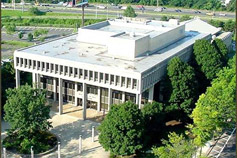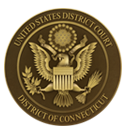United States Circuit Judge, Sitting by Designation
Staff Information
*Judge Merriam only accepts clerkship applications through OSCAR at this time.

BRIEN McMAHON FEDERAL BUILDING
United States Courthouse
915 Lafayette Boulevard - Suite 248
Bridgeport, Connecticut 06604
Location: Courtroom 3
Notice to Parties re Newly Filed Employment Cases Alleging Adverse Actions
Initial Discovery Protocols for Employment Cases Alleging Adverse Actions
Consent and Reference of a Civil Action to a Magistrate Judge
What is a Magistrate Judge?
